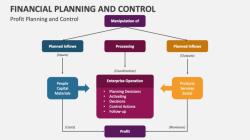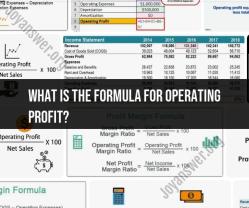What is the value of the Chartered Market Technician (CMT)?
The Chartered Market Technician (CMT) designation is a professional certification for individuals who work in technical analysis and the financial markets. The CMT designation is offered by the CMT Association, a global organization of technical analysts and financial professionals. The value of the CMT designation can be summarized as follows:
Specialized Knowledge and Skills: CMT holders have a strong foundation in technical analysis, which includes the study of price charts, patterns, trends, and other indicators. This knowledge can be valuable in predicting market movements and making informed investment decisions.
Professional Recognition: Earning the CMT designation demonstrates your commitment to your field and your dedication to advancing your skills. Employers and clients often value certifications as evidence of expertise.
Career Advancement: The CMT designation can open doors for career advancement in the finance and investment industry. It may lead to better job opportunities, higher salaries, and increased responsibilities.
Global Recognition: The CMT is a globally recognized designation, which means it can be valuable for professionals working in various financial markets worldwide.
Ethical Standards: CMT holders are expected to adhere to a code of ethics and professional standards, which enhances their credibility and trustworthiness in the financial industry.
Networking Opportunities: The CMT Association provides a platform for networking with other CMT professionals, attending conferences, and staying updated on industry trends and developments.
Investment Analysis: The skills gained through the CMT program can be applied to various aspects of investment analysis, such as stock selection, portfolio management, and risk assessment.
Educational Foundation: The CMT program is comprehensive and rigorous, providing a strong educational foundation in technical analysis. This can be beneficial for individuals seeking to deepen their knowledge in the field.
Independent Research: CMT holders often have the skills to conduct independent research and develop trading strategies, which can be useful for individual investors and financial institutions alike.
Risk Management: Technical analysis skills taught in the CMT program can aid in risk management and decision-making processes, helping investors protect their capital.
It's important to note that while the CMT designation can be valuable for those working in the financial industry, it is just one of many factors that employers and clients consider when evaluating a candidate or financial professional. The value of any certification also depends on the individual's application of the knowledge and skills gained through the program. Furthermore, financial professionals often hold a combination of certifications and degrees to build a well-rounded skill set.
The Value of a Chartered Market Technician (CMT) Designation
The Chartered Market Technician (CMT) designation is a professional credential awarded by the CMT Association to individuals who demonstrate a high level of knowledge and competence in technical analysis. The CMT program is rigorous and comprehensive, and it covers a wide range of topics in technical analysis, including chart patterns, trend analysis, and technical indicators.
The CMT designation is highly valued by employers in the financial industry. CMTs are often employed as investment analysts, portfolio managers, and technical analysts. They may also work as educators or consultants.
Qualifications and Skills Gained Through CMT Certification
To earn the CMT designation, candidates must pass a three-level exam series. The exams cover a wide range of topics in technical analysis, including:
- Chart patterns
- Trend analysis
- Technical indicators
- Market analysis
- Portfolio management
CMT candidates also gain the following skills through the certification process:
- Critical thinking skills
- Problem-solving skills
- Analytical skills
- Communication skills
Career Opportunities and Advancement with a CMT
CMTs have a wide range of career opportunities in the financial industry. They may work as investment analysts, portfolio managers, technical analysts, educators, or consultants.
CMTs often earn higher salaries than their non-CMT counterparts. They also have more opportunities for advancement. For example, many CMTs eventually become portfolio managers or investment directors.
CMT in Financial Analysis and Investment Strategy
CMTs use their knowledge and skills in technical analysis to help investors make informed investment decisions. They use technical indicators and chart patterns to identify trends and potential trading opportunities.
CMTs may also develop and implement investment strategies for their clients. They may also be responsible for managing client portfolios.
Steps to Attaining and Maintaining CMT Designation
To attain the CMT designation, candidates must:
- Meet the education and experience requirements
- Pass a three-level exam series
- Maintain the CMT designation through continuing education requirements
The education requirement for the CMT program is a bachelor's degree in a related field, such as finance, economics, or mathematics. The experience requirement is at least three years of professional experience in a related field.
The CMT exam series is a challenging series of three exams that cover a wide range of topics in technical analysis. Candidates must pass all three exams to earn the CMT designation.
Once you have earned the CMT designation, you must maintain it by completing continuing education requirements every three years.
Conclusion
The CMT designation is a valuable credential for anyone who wants to work in the financial industry. CMTs have a wide range of career opportunities and they often earn higher salaries than their non-CMT counterparts.
If you are interested in pursuing a career in the financial industry, the CMT program is a great way to gain the knowledge and skills you need to succeed.












